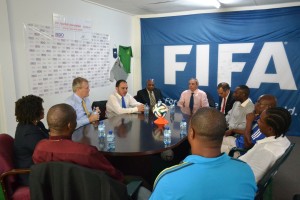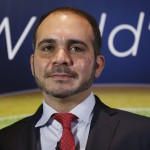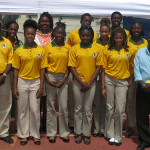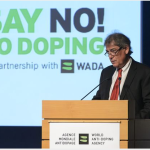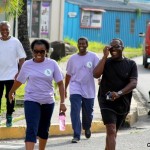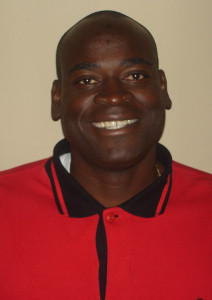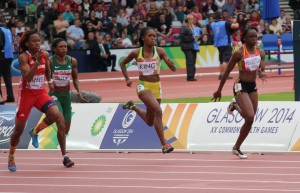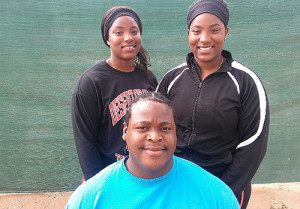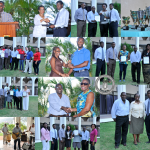
Presenters and award recipients of the 12-Week Fitness Challenge. organised by the Run/Walk for Life Committee. Photo:GIS
The Ministry of Health and Social Development wrapped up the 12-week fitness challenge in style as it recognized top performers during a grand finale on Friday, June 26, held at the Central Administrative Building.
The programme which sought to encourage widespread walking by adults between the ages of 25 and 64, saw participants from 32 groups and 141 individuals who accepted the fitness challenge.
The award ceremony celebrated the accomplishments of over 800 active participants. There was an interactive programme of live entertainment by the Razor Blades, video testimonials, and presentations from the BVI Olympic Committee, remarks from the Chief Medical Officer, Dr. Irad Potter and the Chairperson for the Interdepartmental Working Group, Honourable Archibald Christian and award presentations.
Prizes for the top achievers were announced with Ms. Georgene Henry capturing the top three individual spots followed by Messers Alfanzo Richards and Joel Williams. The top three groups were the Holiness Walkers followed by Trident and TMF BVI Ltd. The grand prize for the top group was a day sail complements Moorings and a couple’s massage from Peter Island Resort and Spa for the top individual.
The 12-week fitness challenge was one of the programmes that was coordinated as part of the BVI Health and Wellness Council three-year walk/run for health campaign. The campaign, which is a collaborative effort between the Ministry Health and Social Development, the Department of Youth Affairs and Sports and the BVI Olympic Committee, aims to inspire persons within the Territory to increase physical activity in an effort to reduce vulnerability to non-communicable diseases like heart diseases, diabetes and some cancers.
The BVIOC successfully applied for funding from the IOC Olympic Solidarity Sport for All Commission to contribute $35,000 over a three-year period towards the campaign.


